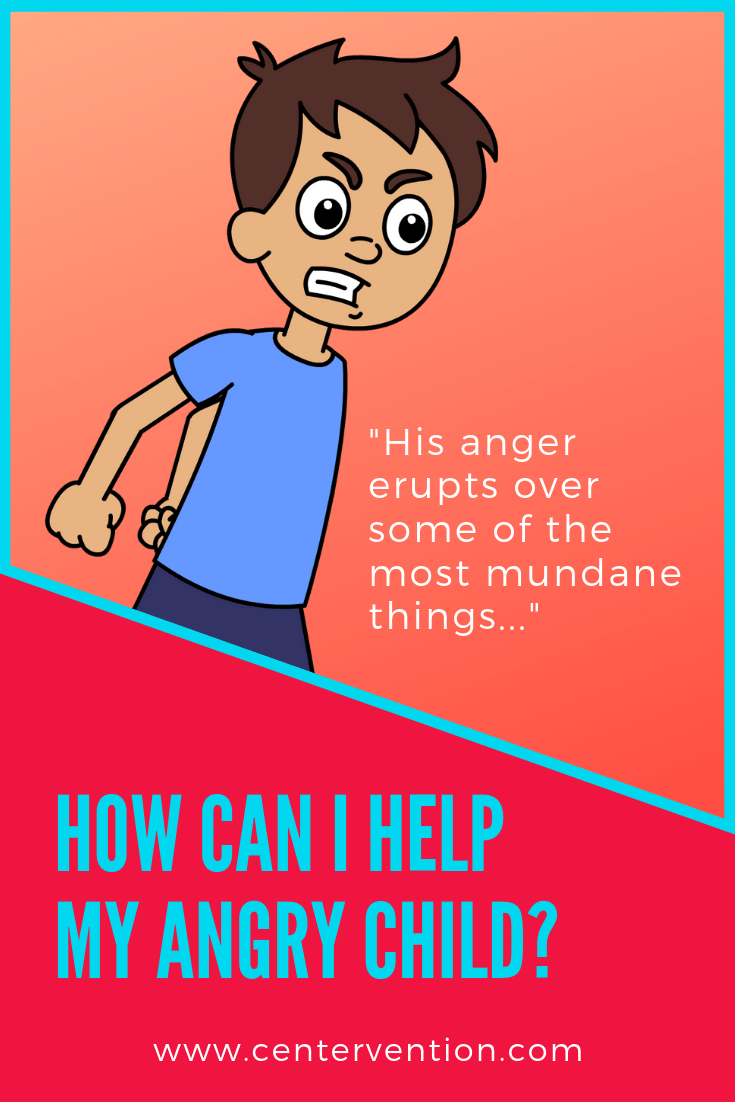
Q: My son can be such an angry kid. When just about anything doesn’t go his way, he gets so upset and frustrated. He starts yelling and has a really hard time settling down. And his anger erupts over some of the most mundane things—a sandwich that’s a little “mushy” or a friend who wants to play a different game during a playdate. He can be really hard to be around sometimes.
How can I help my angry kid?
Anger is a normal emotion, and sometimes it’s okay to be an angry kid
The key is how we handle anger and learn from it. And it’s likely the five-year-old’s mom had figured out better ways to move on from her anger than resorting to a session of kicking and screaming.
“It’s about our big feelings,” said Miller, author of “Confident Parents, Confident Kids,” “and the trick is self-awareness.”
Kids can get angry for a host of reasons. Frustration, perhaps caused by a mushy sandwich or not getting to play a favorite game, is a common trigger, according to Yale Medicine’s Child Study Center.
Some mental health issues such as attention deficit hyperactivity disorder, autism and obsessive-compulsive disorder can cause anger and irritability, according to the center. And so can everything from genetics to family dysfunction and parenting styles, especially when punishment is harsh and inconsistent.
In fact, anger is the top reason why parents seek mental health treatment for their kids, said Denis Sukhodolsky, a clinical psychologist with Yale Medicine Child Study Center, in a Yale article about anger issues in children and teens.
But, in most cases, parents can help their kids understand their angry emotions—and learn from them—at home. Miller offers these strategies to help kids come to terms with their anger.
Notice their body signals—and talk about them
For young children, especially, feeling anger can be a scary experience. They’re hurt and out of control. Their face gets red, their neck gets hot and their heart beats fast. And they feel self-conscious as others watch their outburst. “There’s quite a mash-up of feelings,” Miller said.
Parents can do their children a favor by observing those body signals and talking about them. Miller suggests saying something like, “‘Your face looks red. Are you feeling angry? Your forehead is creased. Are you feeling worried?’”
“Notice the body signals and name the feelings, so that the child starts to build a self-awareness about their feelings,” she said. “When you do that, it simultaneously builds self management skills because the child can say, ‘Oh my gosh, I’m really angry,’ and they can actually articulate to an adult, ‘I’m really angry.’ Just the assertion, ‘I’m really angry,’ begins to calm them down.”
Wait until the episode is over
Don’t attempt to have a meaningful talk with your child about their emotions in the middle of a flare-up.
“When they’re upset, there’s nothing you can do except give them space to calm down and wait for them to calm down because their brain is in flight, fight or freeze mode,” Miller said. “They can barely hear you. You’re not going to get anything accomplished, so don’t plan on it.”
Develop and emotional safety plan
If you have an angry kid, once they’re feeling better, talk with them about better ways to manage their anger. Miller recommends coming up with a family emotional safety plan that covers parents and kids. The plan includes what you’ll say when you’re feeling angry, where you’ll go and what you’ll do once you get there.
A parent’s plan, for example, might include that when they’re angry, they’ll say they need five minutes to calm down, they’ll go to their favorite chair in their bedroom and, once there, they’ll take some deep breaths, write or draw.
Don’t brush off their emotions
It can be tempting, sometimes, to laugh at a child’s anger when they’re irate over the most inconsequential things—a broken cookie or a missing pair of socks. Don’t do it, Miller said. It sends a message to the child that there is something wrong with them.
“Sometimes our past experiences inform our feelings in ways that are not fully informed,” Miller said. “So when they’re ignored, that teaches us that something is wrong with ourselves.”
Listen to them
“Many angry arguments can be prevented just by hearing what your child has to say. Perhaps she has a legitimate gripe. Maybe there’s an easy solution. Maybe he only wants to feel like someone heard his concern. Listening with empathy sends the message that you want to solve the problem without attacking. If anger is the squeaky wheel that gets your attention, this anger will keep erupting; when you listen, you demonstrate that calm talk gets the job done just as well. If you’re dealing with an argument between children, separate them if you need to so you can listen calmly to each.”
Dr. Timothy Murphy, Child psychologist and author, “The Angry Child: Regaining Control When Your Child Is Out of Control”
Practice breathing
“Deep breathing can calm and distract the angriest of children. Practice breathing deeply in and out five times. Count to five on one hand as you are breathing. At the end, ask how your child is feeling. If she is still angry, breathe five more times. Some children enjoy pretending to blow out a candle on each finger.”
Paige Lindblom, Community Outreach Director at Wildrock
Get them active
“Physical strategies such as engaging in sports, exercise, mindfulness and yoga are proven effective in helping young people learn to calm their brains and gain greater control over their choices in healthy behaviors.”
Signe Whitson, Licensed social worker, via Psychology Today